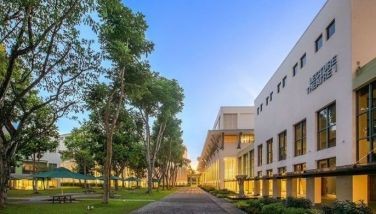‘Luzon Economic Corridor perfect for Japanese investors’
MANILA, Philippines — The Luzon Economic Corridor is seen as a perfect hub for Japanese businesses, particularly those involved in manufacturing and agribusiness, Finance Secretary Ralph Recto said.
In his presentation during the Philippine Economic Briefing in Tokyo yesterday, Recto said that Japan’s role has never been more crucial now as the government moves to enhance its logistics backbone and human capital through productivity-boosting investments.
In particular, Recto said the Luzon Economic Corridor is a perfect hub for Japanese investors involved in cutting-edge manufacturing, semiconductor supply chains and agribusiness.
The economic corridor, which encompasses Subic, Manila and Batangas ports and handles 80 percent of the country’s port traffic, aims to streamline business operations, improve logistics and stimulate development beyond Metro Manila through high-impact infrastructure and railway projects.
The corridor’s role is seen as critical in ensuring food and economic security, lowering inflation and achieving self-sufficiency for the Philippines.
It is also the first of its kind in the Indo-Pacific region and was established during the inaugural Trilateral United States-Japan-Philippines Leaders Meeting in April.
“The current amendments to the country’s fiscal incentives regime–known as CREATE MORE (Corporate Recovery and Tax Incentives for Enterprises to Maximize Opportunities for Reinvigorating the Economy)–should entice more Japanese investors to establish roots and expand in this corridor,” Recto said.
The Finance chief maintained that the bill would enhance both fiscal and non-fiscal incentives while addressing key concerns of Japanese investors such as value-added tax refund.
Recto said CREATE MORE will give birth to more economic corridors in the country, with Japan taking a leading role.
He added that the government is also addressing bottlenecks and streamlining processes to clear the way for Japan’s participation in high-priority sectors such as clean energy, mining, critical minerals, retail, and digital technology, among others.
The former lawmaker emphasized that the Philippines needs more Japanese expertise and technology for its flagship infrastructure projects.
Currently, Japan is the country’s second-biggest trading partner, its largest source of foreign direct investments and the top provider of highly concessional official development assistance.
Japan also remains as the largest investor in the country’s economic zones.
- Latest
- Trending































